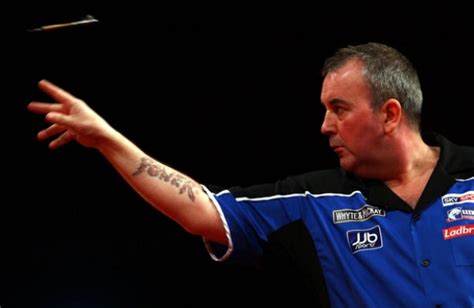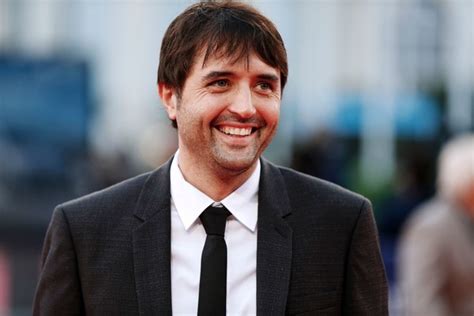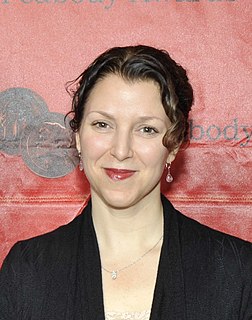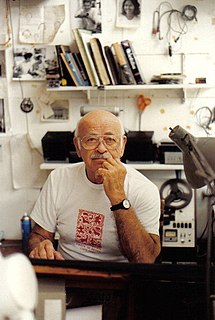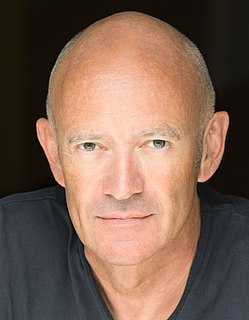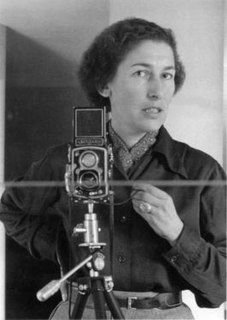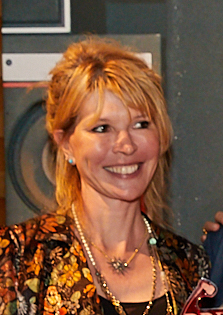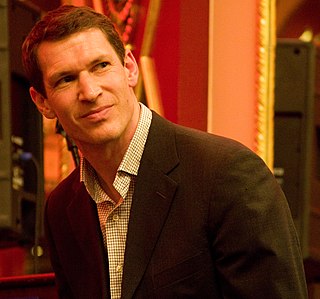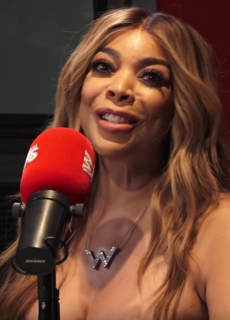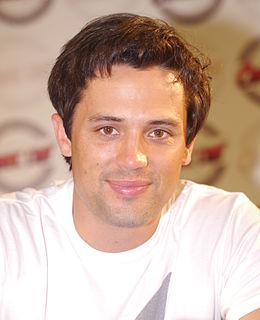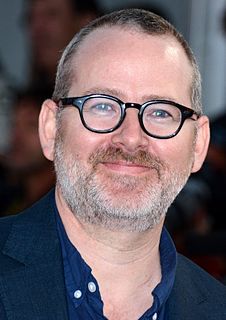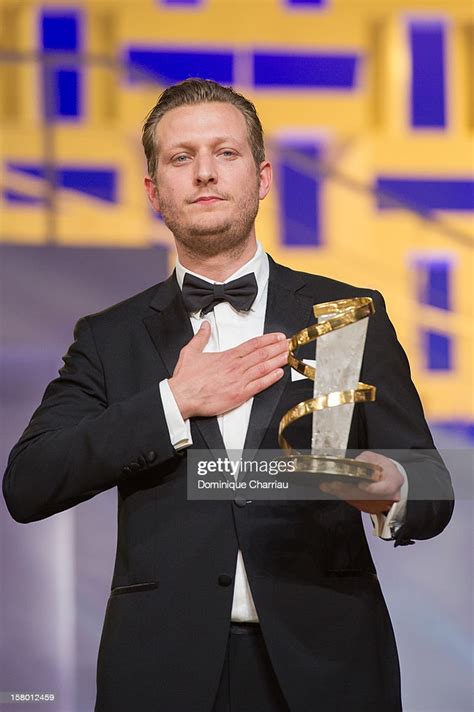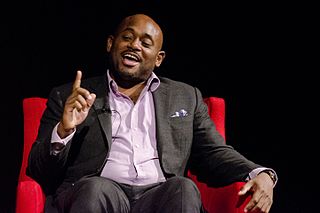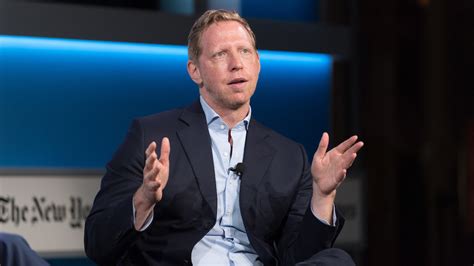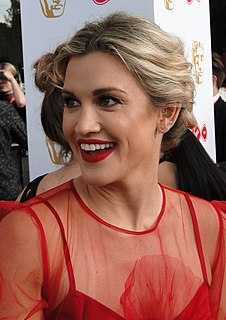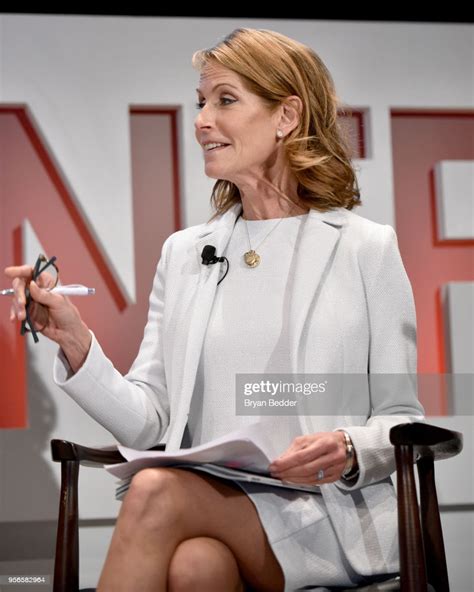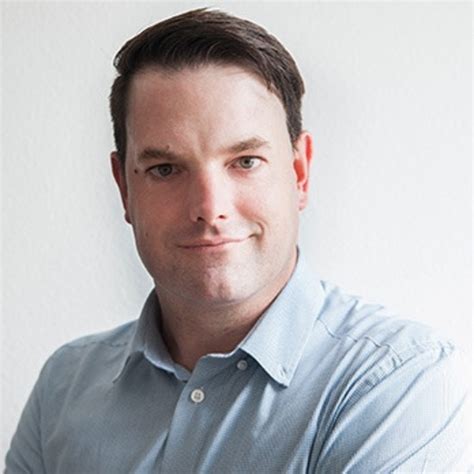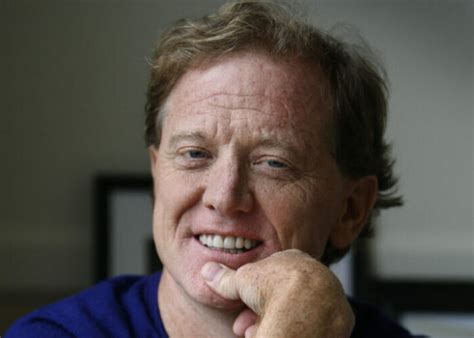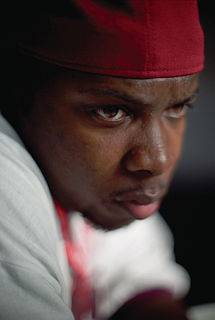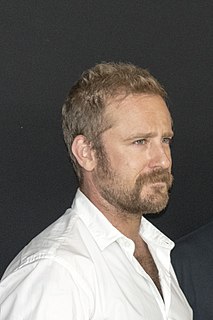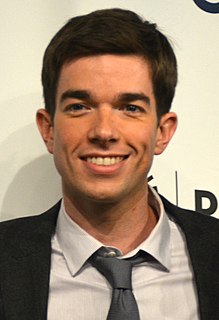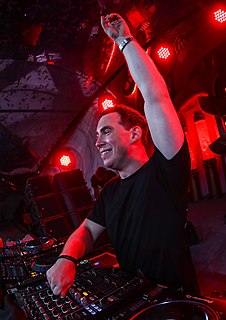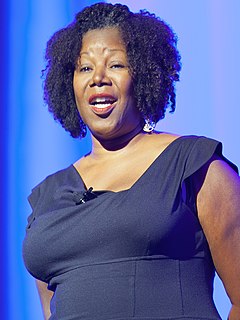Top 786 Documentary Quotes & Sayings - Page 11
Explore popular Documentary quotes.
Last updated on April 22, 2025.
A friend of mine is trying to do a documentary where he brings Jewish and Arab comedians to occupied territories in Israel. He wants to do shows as a way of finding some comedic common denominator. When he proposed the idea to one of the officials at the Jenin refuge camp, the guy just stared at him and said, "This is not a joke to us. We don't think that laughing is the answer."
As incisively pointed out in the documentary Food Inc.," an overwhelmingly large percentage of "new," healthy," and "organic" alternative food products are actually owned by the same parent companies that scared us into the organic aisle in the first place. "They got you comin' and goin'" has never been truer.
When I think about the new film, I think I can do whatever I want with fiction, but the more documentary it is, the better it will be because that's what I'm good at. I'm good at observing people's behavior and putting these unspoken things into movie contexts in ways that other people can sometimes miss.
We tried to present the ordinary in an extraordinary manner. But that's the paradox because the only thing extraordinary about it was that it was so ordinary. Nobody had ever done it before, deliberately. Now it's called documentary, which I suppose is all right ... We just took pictures that cried out to be taken.
My interest in Virtual Reality (VR) films began for me when I began a fellowship with MIT's Open Documentary Lab. It was a profound experience to be on MIT's campus one day a week and to enter a new world of storytelling where breaking convention and traditional methods were expected. This was deeply challenging and inspiring.
I don't know that there were any rules for documentary photography. As a matter of fact, I don't think the term was even very precise. So as far as I'm concerned, the kind of photography I did in the FSA was the kind of photography I still do today, because it is based on passionate concern for the human condition. That is the basis of all the work that I do.
Photography is the typical means of expression of a society founded on a civilization of technicians, conscious of the aims it has set for itself... Its power of exactly reproducing external reality, a power inherent in its technique, lends it a documentary character and makes it appear as the most faithful and impartial process for the reproduction of social life.
I'm not responsible for my photographs. Photography is not documentary, but intuition, a poetic experience. It's drowning yourself, dissolving yourself, and then sniff, sniff, sniff - being sensitive to coincidence. You can't go looking for it; you can't want it, or you won't get it. First you must lose your self. Then it happens.
As the world of independent feature filmmaking became increasingly commercialized by the mid-1990s, there was also a parallel, much more positive development: a resurgence in documentary filmmaking, thanks in part to the advent of the cheaper, lighter digital format that helped to offset the daunting costs of pursuing political aims through film.
What is interesting to me about film, and documentary film in particular, is that I can write about these people, and you trust my judgment, more or less, but when you're confronted yourself with humans who are right there on the screen telling you their story, you make a judgment yourself that is conclusive.
A fully developed bureaucratic mechanism stands in the same relationship to other forms as does the machine to the non-mechanical production of goods. Precision, speed, clarity, documentary ability, continuity, discretion, unity, rigid subordination, reduction of friction and material and personal expenses are unique to bureaucratic organization.
That's what I love about documentary filmmaking, we never know where the story is going, we don't know what is going to happen next, and we're inside a culture of people that you have to figure out in many ways. It's a relationship between what you thought might have been the story, and what happens in the 'field.'
I was fooled a bit during 'Laguna Beach.' I was 17, 18 years old, and I thought they just wanted to shoot a documentary, and that it probably wouldn't end up anywhere, anyway. Little did we know about the power of editing. I had no idea that it was going to be the soap drama that it was, but I picked up on that pretty quickly.
Somehow, in the novel format, I don't really like to do upfront, ideological discussion. In my heart, literature remains a poetic and ambiguous medium. On the other hand, I trained as a documentary filmmaker in film school, so my films very much reflect reality and socio-political problems. They're less subtle I would say.
I was 13 years old when I first heard of the Sultan of Brunei. The absolute ruler of a tiny, oil-rich kingdom in Southeast Asia, Hassanal Bolkiah was the subject of a much-discussed TV documentary by the British filmmaker Alan Whicker in 1992. As a young teenager, sitting in front of the television, I was in awe of this Muslim king.
When people think of biblical movies, they imagine sweeping epics like 'The Ten Commandments.' But 'The Gospel According to St. Matthew' is essentially a documentary about Jesus. It made me aware of how real life and personal experience can create more breathtaking, sensitive cinema than more sophisticated techniques.
I'm doing a lot of research right now on what's happening in Arizona. That's where I'm at with more conventional documentary filmmaking. I think it is an urgent cause. I think I need to make something. I'm a part of it. Everybody's a part of it, and this country needs to know what's happening there in a very truthful way.
I always tell aspiring documentary filmmakers, 'You have to go into it because you love it; if you go into it for the money, you're an idiot.' The number one prerequisite is you have to be intensely curious. If you love learning and trying to make people figure out what makes people tick, it's the best job in the world.
Directing plays lacked the immediacy and connection to real world events that journalism offered; journalism lacked the drama, theatricality and subjective storytelling of theater. It wasn't until I had the idea of making a documentary film about the 1992 presidential campaign that these two passions came together in 'The War Room.'
If I were writing an article for the newspaper, it would be thesis statement, information, information, supporting arguments. That would be the setup. When I'm making a documentary, the pacing of the film and the way that you sort of switch from character to character - all of those are more about storytelling than straight journalism.
The reason I don't want to say anything about it is it has a strange power to take over the conversation. Just like it's doing with us. I was asked to participate in a documentary about Richard Prince, and be the voice of someone who was appropriated, and I declined. The reason I did is I don't want it to be the subject of the discussion of my work.
I hope 'Warning: This Drug May Kill You' documentary helps to show the humanity of the people who are struggling with the brain disease of addiction because that is what this is - this isn't about bad people, this is about good people who became addiction oftentimes in the process of being prescribed medication for pain.
In 1995 I decided to stop eating meat. I could never really quite explain why; I think it was something to do with watching a documentary where they cooked a cat and partly because I had a really crap job working for Wolves Poly and felt my life was slipping away. It definitely wasn't anything to do with any 'vegetarian month'.
There is a wonderful documentary called 'A Room to Breathe,' where a school brought in a TM instructor, to try and establish a better classroom environment, and the results and transformations were profound. It's impossible to ignore, and we make some passing references in my film, but 'A Room to Breathe' is a closer look at just how powerful meditation can be.
I can't pick a favorite animal; I love so many! But I guess if I have to choose, I pick bees! There's this brilliant documentary called 'Queen of the Sun: What Are the Bees Telling Us?' I think it's important for people to be educated about bees - they pollinate almost all the food we eat. They are amazing!
Independent documentary isnt beholden to some of the interests that the mainstream media are influenced by. Its a pathway to renegade, independent reporting in an in-depth, investigative fashion, and it can do so with a compassionate lens; it allows people to speak in a way that is more human than the mainstream media approach.
We've turned film into such an industry that we pursue naturalism just by shaking the camera and cutting the film to ribbons to provoke a bogus sense of documentary. But we haven't done the homework. To push the depth that the Actor's Studio did or the Russian theatres did with their actors is to rehearse, to spend time, to dig, to excavate.
I received a phone call from my mother, and it was so complicated and involved, and it reminded me of just how it is in a family, and how it is in Mexico, and gossip, and all this stuff. And I thought, well, why can't a documentary be made about gossip? And in that way, I touch upon these other things - identity, cultural identity, and aesthetics.
Some of my pictures are poem-like in the sense that they are very condensed, haiku-lik. There are others that, if they were poetry, would be more like Ezra Pound. There is a lot of information in most of my pictures, but not the kind of information you see in documentary photography. There is emotional information in my photographs.
The documentary 'Certifiably Jonathan' has engrossing moments in it. How can it not? It's got a great subject - the extraordinarily voluble comedian Jonathan Winters, whose constant rush of words can be like a blizzard: beautiful, maddening, exhausting, and finally beautiful again. But it's not a great film.


